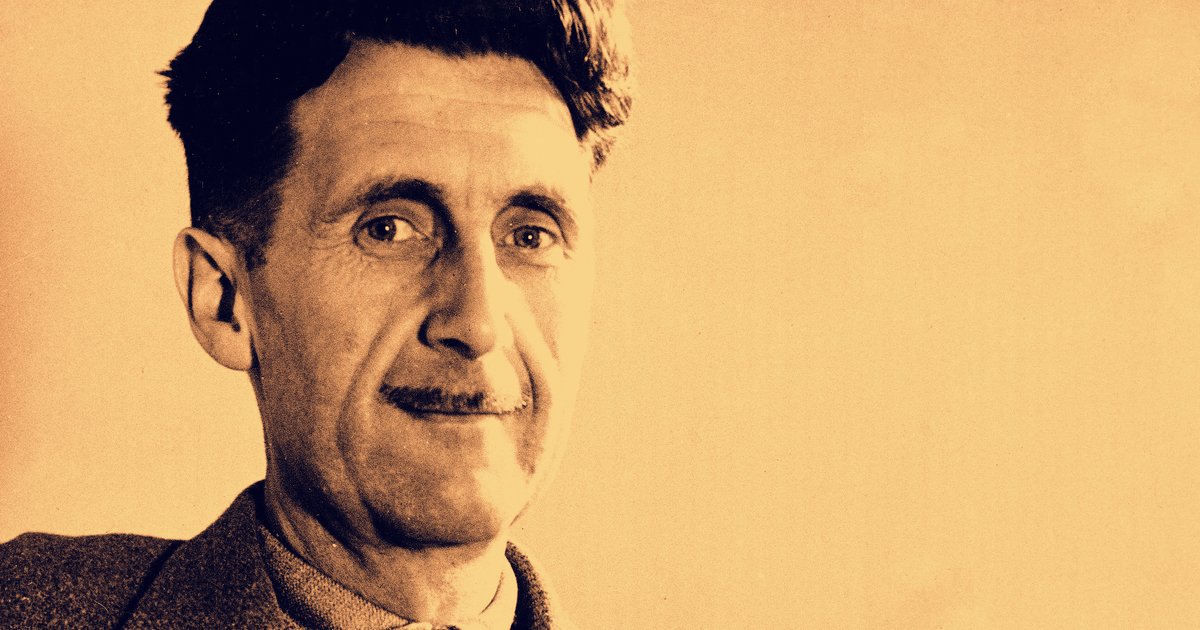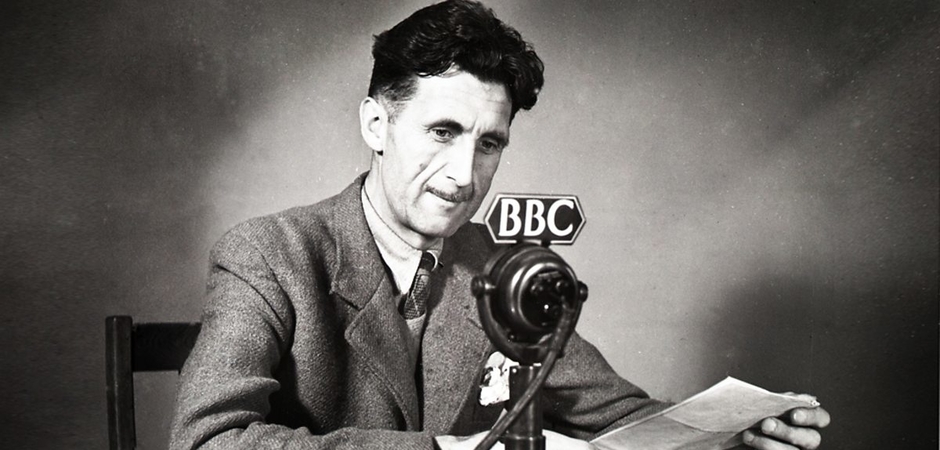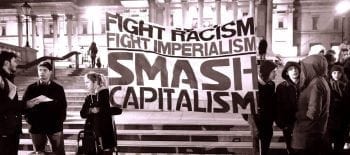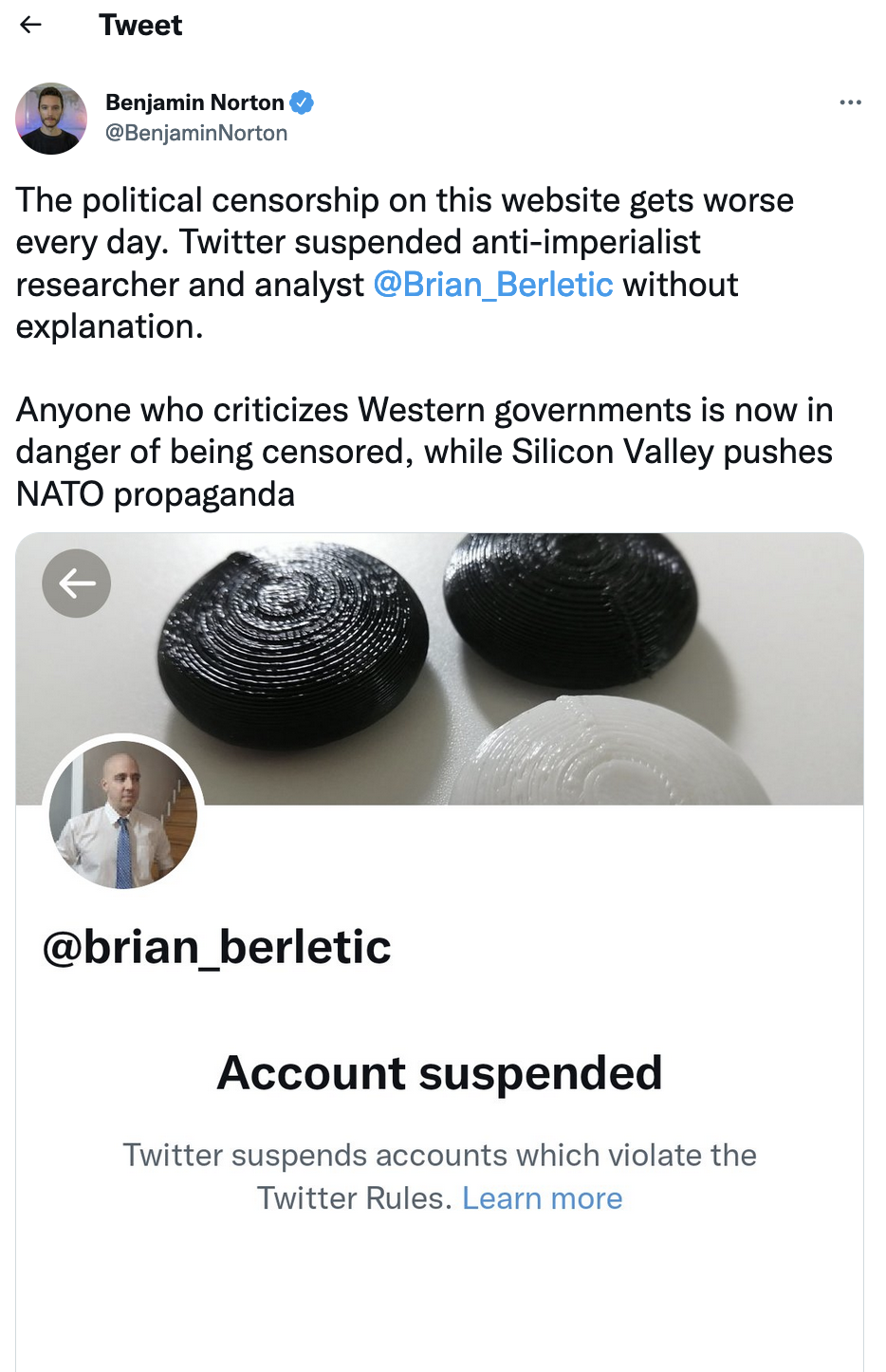| [premium_newsticker id="337867"] |
THIS IS A REPOST. First published 14 December 2016

For all his undeniable talent and uniqueness, Orwell proved to be a petty egotist and betrayer of his former comrades.
For years, the cat has been out of the bag: George Orwell secretly worked for the UK’s Foreign Office. At the end of his life, he was an outright counter-revolutionary snitch, spying on leftists on behalf of the imperialist British government.
The US government also found Orwell’s work quite useful. The coup-plotting, death squad-training assassins and torturers at the Central Intelligence Agency turned Orwell’s books into a propaganda weapon. The CIA even funded the Animal Farm movie, which is now mandatory viewing in many high schools.
But that happened after Orwell’s death in 1950. What is more scandalous is that he knowingly collaborated with the UK government when he was still alive.
“Orwell’s List” is a term that should be known by anyone who claims to be a person of the left. It was a blacklist Orwell compiled for the British government’s Information Research Department, an anti-communist propaganda unit set up for the Cold War.
The list includes dozens of suspected communists, “crypto-communists,” socialists, “fellow travelers,” and even LGBT people and Jews — their names scribbled alongside the sacrosanct 1984 author’s disparaging comments about the personal predilections of those blacklisted.
The document was declassified by the British government in 2003. The leading neoliberal newspaper The Guardian reported at the time that the blacklist “contains the names of 38 public figures, from the actors Charlie Chaplin and Michael Redgrave to the author JB Priestley, whom Orwell suggested should not be trusted by the IRD as anti-communist propagandists.”
Timothy Garton Ash, the historian who obtained the document, revealed that Orwell gave the blacklist to his close friend Celia Kirwan, who worked for the Foreign Office’s Information Research Department, from his sickbed in May 1949.
Orwell had told Kirwan in April that the list included journalists and writers who “in my opinion are crypto-communists, fellow-travellers or inclined that way and should not be trusted as propagandists.”
“There seems to be general agreement by Orwell’s fans, left and right, to skate gently over Orwell’s suspicions of Jews, homosexuals and blacks, also over the extreme ignorance of his assessments,” wrote legendary radical journalist Alexander Cockburn, sardonically referring to the anti-communist blacklist as “St. George’s List.”
 “If any other postwar left intellectual was suddenly found to have written mini-diatribes about blacks, homosexuals and Jews, we can safely assume that subsequent commentary would not have been forgiving,” he added. “Here there’s barely a word.”
“If any other postwar left intellectual was suddenly found to have written mini-diatribes about blacks, homosexuals and Jews, we can safely assume that subsequent commentary would not have been forgiving,” he added. “Here there’s barely a word.”
Cockburn’s The Nation article on the subject, “St. George’s List,” is difficult to find today. I have republished it in full below. The article was also expanded into “The Fable of the Weasel,” Cockburn’s foreword for John Reed’s Animal Farmparody Snowball’s Chance.
Apologists insist Orwell simply “sold out” later in life and became a cranky conservative, yet the story is more complex. Orwell had a consistent political thread throughout his life. This explains how he could go from fighting alongside a Spanish Trostkyite militia in a multi-tendency war against fascism to demonizing the Soviet Union as The Real Enemy — before returning home to imperial Britain, where he became a social democratic traitor who castigated capitalism while collaborating with the capitalist state against revolutionaries trying to create socialism.
Sure, the USSR did some objectionable things, but it was also the only large country in the entire world that supported the Spanish Republicans in their fight against fascism (excluding a bit of extra support from Mexico). The Soviet Union understood that one cannot have a revolution if one cannot even defeat the fascist counterrevolution first — a lesson many on the left still have not learned today.
Yet leftists like Orwell and his devoted followers continue to lament Kronstadt and revel in their ideological purity — while conveniently living relatively comfortable lives in Western imperialist countries that commit much more heinous crimes throughout the world every day.
Orwell spent WWII writing about how evil the Nazi-destroying USSR was
George Orwell’s infantile politics are most evident in his magnum opus, 1984. And one of the most important reviews of this book was not by a political scholar or philosopher, but rather by none other than science fiction master Isaac Asimov.
In his review of 1984, Asimov rips the novel to shreds. He also points out a shocking fact that conveniently escapes the myriad disciples of the British author: George Orwell spent the peak years of genocidal destruction of World War II writing a childish story about how evil the Nazi-killing Soviet Union supposedly was.
As Asimov points out:
He [Orwell] wasn’t much affected, apparently, by the Nazi brand of totalitarianism, for there was no room within him except for his private war with Stalinist communism. Consequently, when Great Britain was fighting for its life against Nazism, and the Soviet Union fought as an ally in the struggle and contributed rather more than its share in lives lost and in resolute courage, Orwell wrote Animal Farm, which was a satire of the Russian Revolution and what followed, picturing it in terms of a revolt of barnyard animals against human masters. He completed Animal Farm in 1944 and had trouble finding a publisher, since it wasn’t a particularly good time for upsetting the Soviets. As soon as the war came to an end, however, the Soviet Union was fair game, and Animal Farm was published.
Orwell wrote this childish novel — now basically mandatory reading in US high schools — in 1943 and 1944, at the height of the Nazi Holocaust.
That is to say, while the genocidal Nazi regime was mowing down Red Army soldiers with warplanes, tanks, and machine guns — and while SS officers were shoving Jews, Romani, and disabled people into ovens and gas chambers — George Orwell was occupying his time writing a story about barn animals and how Stalin was a big mean pig.
 The Battle of Stalingrad, one of the largest battles in human history, ended in 1943 — the year Orwell began work on Animal Farm. In this battle alone, half a million Soviet soldiers sacrificed their lives to defeat fascism. (Not to mention the civilian toll, which exceeded that.)
The Battle of Stalingrad, one of the largest battles in human history, ended in 1943 — the year Orwell began work on Animal Farm. In this battle alone, half a million Soviet soldiers sacrificed their lives to defeat fascism. (Not to mention the civilian toll, which exceeded that.)
In the entire war, more than 26 million Soviets died — compared to just around 400,000 Brits and 400,000 Americans. Even virulent right-wing colonialist and racist Winston Churchill, an inveterate anti-communist, had to admit the undeniable fact that “it is the Russian Armies who have done the main work in tearing the guts out of the German army,” or, as he repeated in 1944, “it is the Red Army that has torn the guts out of the filthy Nazis.”
But if you were to read Orwell, you would think that the Soviets were the real evil ones. As Asimov observed in his review, in 1984, “Orwell didn’t want readers to mistake the villains for Nazis. The picture is of Stalinism, and Stalinism only.”
In fact, Orwell had nothing at all to say about the enormous Soviet sacrifice in World War II. He was much more interested in demonizing the USSR and everything it stood for. Because, like much too many anti-communist “leftists,” Orwell’s hatred of communists exceeded his hatred of genocidal fascists (something he shared in common with Conservative Prime Minister Neville Chamberlain).
Isaac Asimov was no communist; he was much more of a progressive New Deal Democrat. But even he was shocked at Orwell’s childish personal obsessions, noting that, “to the end of his life, he [Orwell] carried on a private literary war with the communists, determined to win in words the battle he had lost in action.”
Asimov was also struck simply by how bad 1984 is as a piece of literature. “I read it and found myself absolutely astonished at what I read,” he recalls. “I wondered how many people who talked about the novel so glibly had ever read it; or if they had, whether they remembered it at all. I felt I would have to write the critique if only to set people straight.”
But there is a reason we remember Orwell. And it is not because of his literary prowess. It is because of the novel’s political utility to reactionary capitalist and imperialist governments. Asimov is careful to point out:
By the time the book [1984] came out in 1949, the Cold War was at its height. The book therefore proved popular. It was almost a matter of patriotism in the West to buy it and talk about it, and perhaps even to read parts of it, although it is my opinion that more people bought it and talked about it than read it, for it is a dreadfully dull book – didactic, repetitious, and all but motionless.
From British colonial officer to anti-communist snitch
None of this is to even mention the earlier life of George Orwell, the pen name of Eric Arthur Blair (of no know familial relation to Tony Blair, although their fake “left-wing” politics are certainly related). The son of a British colonial officer from a wealthy landed family, Orwell made no secret of the fact that he began his career as a British imperial official working in the Crown’s colonies in southeast Asia.
Sure, Orwell later denounced his past work on behalf of the British empire, but he held on to his colonialist mentality.
Orwell’s politics are social chauvinist in the rawest sense. It is no coincidence that many of his avowed admirers today lionize and whitewash “revolutionary” extremist Salafi-jihadist militias in Syria and Libya, while at the same moment violently condemning progressive revolutions in Cuba, China, Vietnam, Venezuela, and beyond as mere “Stalinist bureaucracies.”
That is to say, it should come as no surprise that the architect of Animal Farm is adored by the likes of Christopher Hitchens and Michael Weiss. George Orwell was the first in a long line of Trots-turned-neocons.
The following article was first published as Cockburn’s column “Beat the Devil” in The Nation on December 7, 1998
“St. George’s List,” by Alexander CockburnIn our last installment we left the two most notable anti-Communist literary figures in postwar England about to enjoy a country weekend together, with George Orwell visiting Arthur Koestler’s cottage in Wales. This was Christmas 1946. Also present were Koestler’s second wife, Mamaine, and her twin sister, Celia Kirwan. Orwell took a shine to Celia and indeed proposed to her soon after they were back in London. She turned him down.
|
 BENJAMIN NORTON is an invaluable journalist and activist of the genuine left (almost an extinct species in the United States and much of the decadent, Americanised Europe). He is a full-time Journalist / periodista || Editor at his new site, @Multipolarista. He is formerly a senior editor with The Grayzone, another terrific site for all progressives and anti-imperialists. Ben speaks perfect Spanish and lives in Latin America.
BENJAMIN NORTON is an invaluable journalist and activist of the genuine left (almost an extinct species in the United States and much of the decadent, Americanised Europe). He is a full-time Journalist / periodista || Editor at his new site, @Multipolarista. He is formerly a senior editor with The Grayzone, another terrific site for all progressives and anti-imperialists. Ben speaks perfect Spanish and lives in Latin America.
 BENJAMIN NORTON is an invaluable journalist and activist of the genuine left (almost an extinct species in the United States and much of the decadent, Americanised Europe). He is a full-time Journalist / periodista || Editor at his new site, @Multipolarista. He is formerly a senior editor with The Grayzone, another terrific site for all progressives and anti-imperialists. Ben speaks perfect Spanish and lives in Latin America.
BENJAMIN NORTON is an invaluable journalist and activist of the genuine left (almost an extinct species in the United States and much of the decadent, Americanised Europe). He is a full-time Journalist / periodista || Editor at his new site, @Multipolarista. He is formerly a senior editor with The Grayzone, another terrific site for all progressives and anti-imperialists. Ben speaks perfect Spanish and lives in Latin America. (http://multipolarista.com/author/benjamin-norton) || Videos: http://rokfin.com/benjaminnorton || English / español
CODA
Some day, we'll settle accounts with these disgustingly hypocritical billionaire despots. Good that Ben reminded us of this (latest) outrage among many.
The views expressed herein are solely those of the author and may or may not reflect those of
The Greanville Post. However, we do think they are important enough to be transmitted to a wider audience.
If you find the above useful, pass it on! Become an "influence multiplier"!
The battle against the Big Lie killing the world will not be won by you just reading this article. It will be won when you pass it on to at least 2 other people, requesting they do the same.
| Did you sign up yet for our FREE bulletin? It's super easy! Sign up to receive our FREE bulletin. Get TGP selections in your mailbox. No obligation of any kind. All addresses secure and never sold or commercialised. |
![]() This work is licensed under a Creative Commons Attribution-NonCommercial 4.0 International License
This work is licensed under a Creative Commons Attribution-NonCommercial 4.0 International License






George Orwell may not have been a Socialist but some of his remarks remain germane. Commenting on the genesis of Animal Farm he stated: ‘I saw a little boy, perhaps ten years old, driving a huge carthorse along a narrow path, whipping it whenever it tried to turn. It struck me that if only such animals became aware of their strength we should have no power over them, and that men exploit animals in much the same way as the rich exploit the proletariat.’ He wrote of dictators such as Franco, Hitler and Stalin for whom “yesterday’s weather can be… Read more »